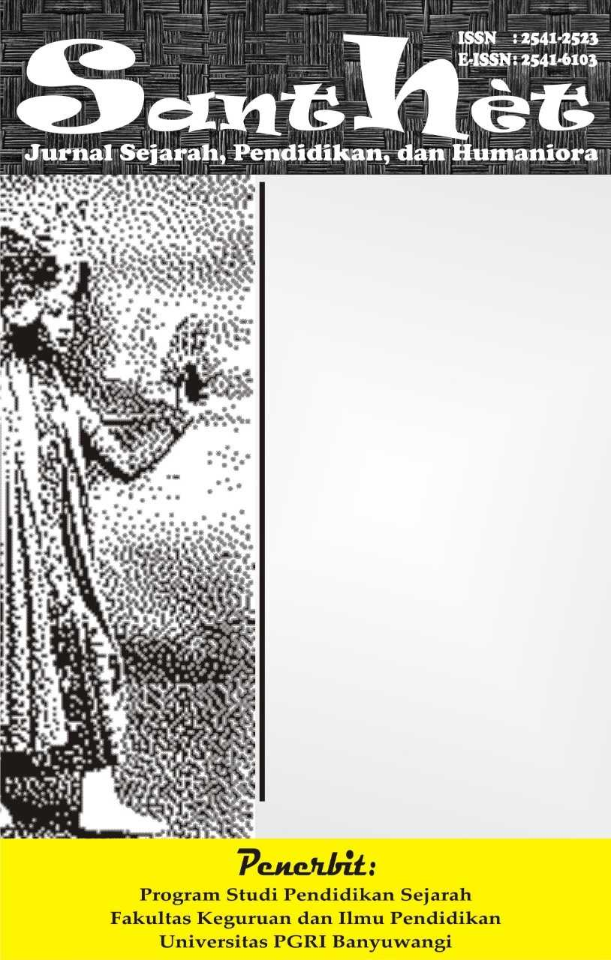The Effect of Using Google Forms to Improve English Listening Skills
DOI:
https://doi.org/10.36526/santhet.v8i2.4640Keywords:
Google form, listening skillsAbstract
This study aimed to determine the effect of using Google Form to improve students' English listening skills. This study uses an experimental research type conducted in one class. The sample in this study was class A students of the Management study program at Narotama University, totaling 25 students. The results of the study showed a t sig value of 0.000 <0.05, which means that there is a difference in the average pretest and posttest scores of students, which means that there is an influence of using Google Forms to improve students' English listening skills. The results of this study were that students felt more involved and motivated when using Google Form compared to conventional listening methods, the use of Google Form in listening training allowed students to get direct feedback, Google Form increased student motivation in learning listening and Google Form allowed lecturers to collect data and analyze the level of student understanding more easily and accurately
References
Carter, R. A., Wright, V. H., & Lunsford, M. L. (2017). Using Digital Tools to Improve Classroom Interaction and Engagement. Computers in Human Behavior.
Cao, Zhaowen, and Yuewu Lin. 2020. “A Study on Metacognitive Strategy Use in Listening Comprehension by Vocational College Students.” English Language Teaching 13(4):127–39.
Deci, E. L., & Ryan, R. M. (1985). Intrinsic Motivation and Self-Determination in Human Behavior. Springer Science & Business Media.
Deci, E. L., & Ryan, R. M. (2000). The" what" and" why" of goal pursuits: Human needs and the self-determination of behavior. Psychological Inquiry, 11(4), 227-268.
Goh, Christine C. M., and Larry Vandergrift. 2021. Teaching and Learning Second Language Listening: Metacognition in Action. Routledge.
Hwang, Gwo-Jen, Chiu-Lin Lai, and Siang-Yi Wang. 2015. “Seamless Flipped Learning: A Mobile Technology-Enhanced Flipped Classroom with Effective Learning Strategies.” Journal of Computers in Education 2:449–73.
Hwang, G. J., Tsai, C. C., & Yang, S. J. H. (2015). Criteria, Strategies and Research Issues of Context-Aware Ubiquitous Learning. Journal of Educational Technology & Society.
Hwang, G.-J., Shadiev, R., & Huang, Y.-M. (2015). Using Google Forms to enhance learning and motivation in English listening. Journal of Educational Technology Development and Exchange, 8(2), 1-18.
Lin, Y., Hou, J., & Yang, C. (2020). Integrating Google Forms in English Language Instruction: Case Study of University Students. Journal of Language and Linguistics.
Ryan, Richard M., and Edward L. Deci. 2000. “Self-Determination Theory and the Facilitation of Intrinsic Motivation, Social Development, and Well-Being.” American Psychologist 55(1):68.
Vandergrift, L., & Goh, C. C. (2012). Teaching and learning second language listening: Metacognition in action. Routledge.
Vygotsky, L. S. (1978). Mind in Society: The Development of Higher Psychological Processes. Harvard University Press.
Xiao, Ziang, Yuqi Yao, Chi-Hsien Yen, Sanorita Dey, Helen Wauck, James M. Leake, Brian Woodard, Angela Wolters, and Wai-Tat Fu. 2017. “A Scalable Online Platform for Evaluating and Training Visuospatial Skills of Engineering Students.” in 2017 ASEE Annual Conference & Exposition.





























